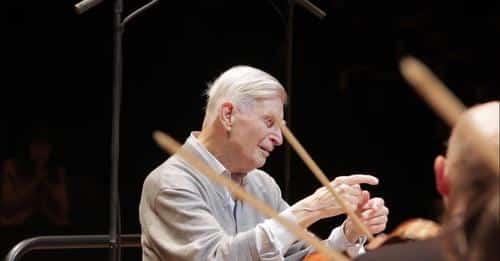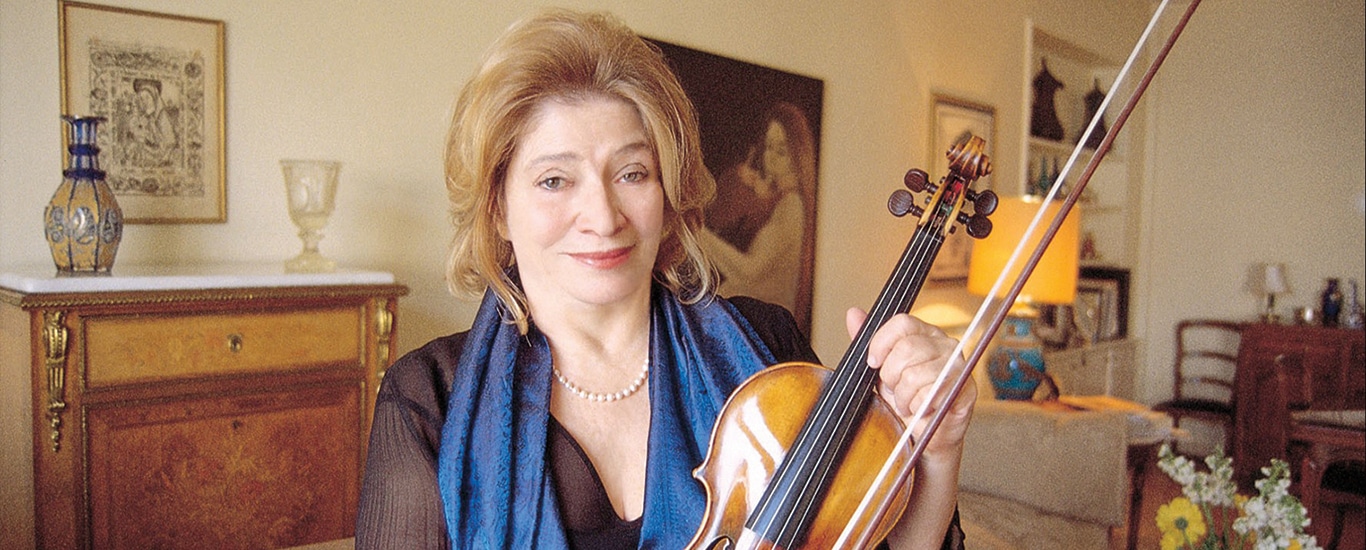How Glenn Gould saved my mind
NewsBy mathematician Paula Tretkoff:
Imagine waking up one morning to find yourself drowning in words and going under deeper yet with the letters comprising those words. You had been doing so well, too well. It had felt odd, disproportionate. Then, something in your brain flips the switch. It’s not that you’re going somewhere great; you’re going nowhere. The filters that help you make sense of the world have taken leave.
Time ordering is absent.
You hear in your head conversations from childhood taking equal rank with something said yesterday.
You remember every word you ever heard, you ever read, you ever thought, all turning up at once to demand your attention.
I live with paranoid schizophrenia, some of whose symptoms are relatively well-known: paranoia, visual and auditory hallucinations, feeling judged, to name a few. These are terrifying to experience and scary for others to witness. Behavioral therapy and medication can significantly attenuate them. A stressless, kind, and loving environment also helps. In my case, among the most potent symptoms are a mental loss of time ordering and the emergence of a verbal brain soup.
The emotional benefits of music are well-known to all who love that medium. It is not the status of the music in the annals of time that’s important, but its healing effects for the distressed soul. I, too, benefit from a large variety of music in this way.
The recordings of Glenn Gould hold a unique place in my ability to deal with the linguistic suffering and the disappearance of time ordering that I endure during a relapse of my schizophrenia.
This benefit has nothing in common with emotional release.
At the heart of Glenn Gould’s power to help is the lack of hierarchy, but not of an invitation to structure, in how he plays music. He ditches dominance of one note over another for open structure, serving up the music as if to say: “I play every note without prejudice.
Now, build a structure with these notes in your mind as the listener.” He hints not at one structure but at many possible configurations. He gives just enough edifice within his playing to enable you to erect your own. His performances are like a kit, and it’s up to you to put the pieces of it together.
Glenn Gould encouraged the audience to view itself as an artist.
That invitation to a one-to-one relationship of artist player to artist listener, that outstretched hand, has helped me constructively reorder my mental disorder many times.
Glenn Gould’s recordings give me just enough structure to navigate the confusion of some of my symptoms.
I cannot live happily without Glenn Gould.







I believe what Paula is referring to is how Glenn Gould blends remarkable spontaneity with profound clarity of articulation, including shining a light on every detail with stirring presence. Expanding upon these qualities, one may explore the music of Shivkumar Sharma, who plays santoor, and Anindo Chatterjee, who plays tabla. These monumental Indian classical artists exemplify the qualities mentioned above together with an abundance of additional musical attributes, including an uncanny wedding of mathematical and spiritual exaltation.
http://www.azuremilesrecords.com/spiritualhighshivkumarsharmainterview.html
http://www.azuremilesrecords.com/divineinfluenceanindochatterjee.html
Paula is a mathematician writing about music, and her highly advanced prose reminds me of a woman who originally studied chemistry, and later turned to writing about poetry, this being Helen Vendler, who I believe is the preeminent living practitioner of the English language together with Bob Dylan. Key to Paula’s remarkable insights are how great recordings afford myriad perspectives and experiences, hearing and feeling the same music a bit differently, and sometimes dramatically differently, every time we listen. This includes the interpreter, the composer, the environment, and the sound delivery mechanism, all interacting with the listener, who is the one variable, being physically and emotionally different at any given time. Paula is obviously deeply simpatico with Gould’s playing as myriad music lovers are, if not to the dramatically wonderful extent she expresses, including transcending whatever composer’s music he has recorded.
http://azuremilesrecords.com/thoughtssosublimehelenvendlerinvents.html
Does the composer that GG is playing (Bach, presumably?) not warrant a mention?
“At the heart of Glenn Gould’s power to help is the lack of hierarchy, but not of an invitation to structure, in how he plays music. He ditches dominance of one note over another for open structure, serving up the music as if to say: “I play every note without prejudice.
Now, build a structure with these notes in your mind as the listener.” He hints not at one structure but at many possible configurations. He gives just enough edifice within his playing to enable you to erect your own. His performances are like a kit, and it’s up to you to put the pieces of it together.
Glenn Gould encouraged the audience to view itself as an artist.”
I find all of this incomprehensible.
If this woman has any therapeutic benefit of GG’s recordings, it is definitely not the playing, but simply the order that is embedded in the music itself, which is structured with different layers of hierarchy: a foreground (what we hear) and a background (deep structure over longer stretches), sometimes even a middleground. GG has nothing to do with this. If he plays well, this means that the ordering hierarchies and ‘mental filters’ come across clearly, that is all.
Paula, you are extremely brave to share personal experiences and thoughts about Glenn Gould’s interpretive renditions of Bach. This phenomenon in neuroscience is called the hard problem of consciousness. While I am new to this field of research, it would be fascinating to do a case research study to further examine qualia of a Glenn Gould’s recording in an abnormally structured brain versus a normal brain.